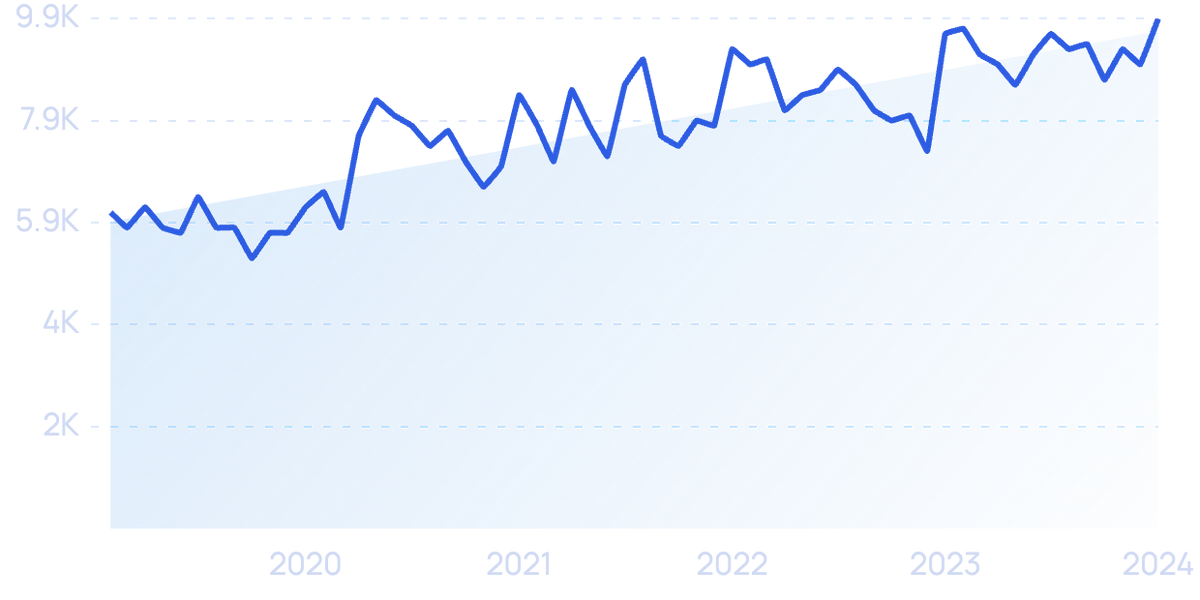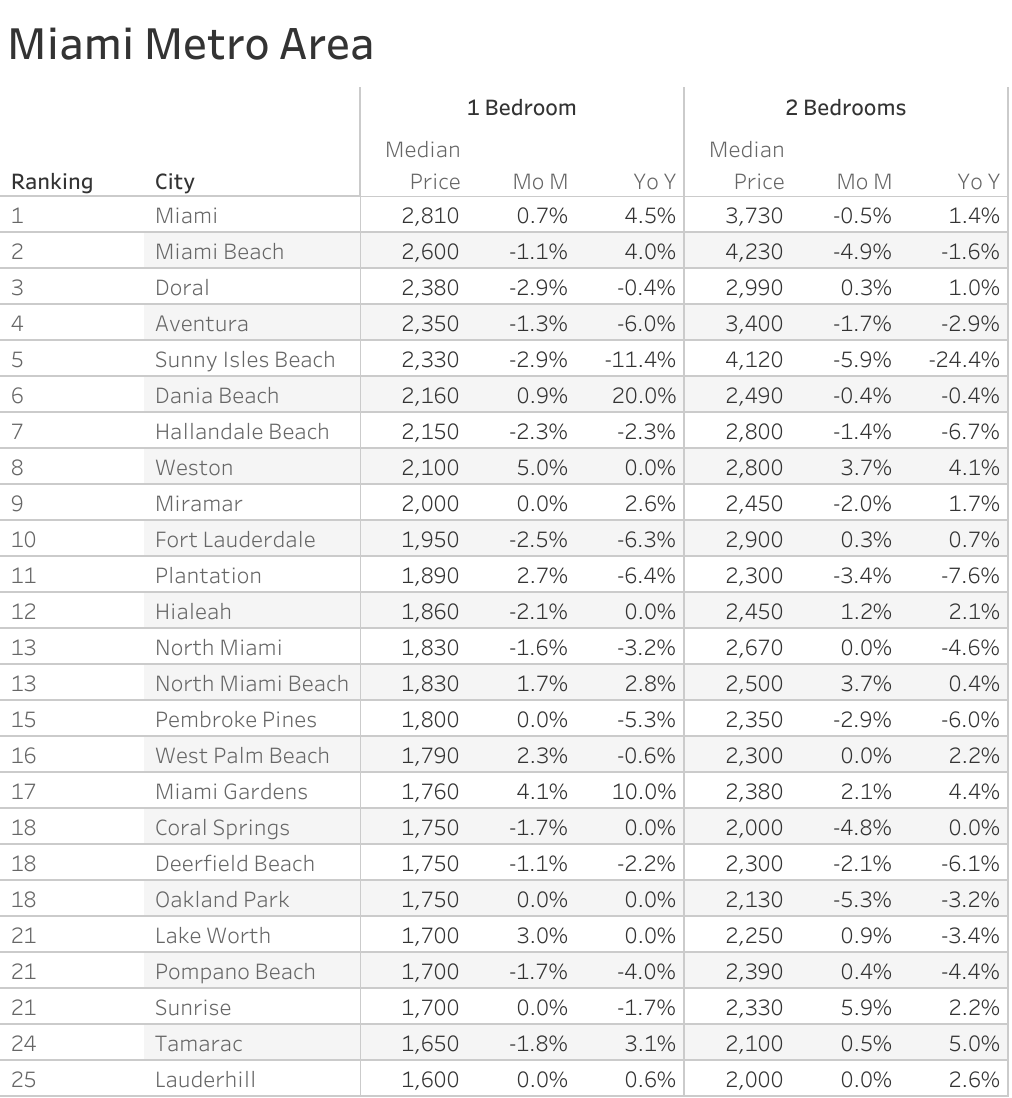Revolutionizing Skin Cancer Diagnosis with AI: Efficacy and Future Prospects
AI’s Role in Revolutionizing Skin Cancer Diagnosis
In a groundbreaking study published by Nature on May 14, 2024, researchers have delved into the burgeoning field of artificial intelligence (AI) in dermatology. The systematic review and meta-analysis focus on AI’s efficacy compared to human clinicians in diagnosing skin cancer, a disease that remains the most common neoplasm worldwide.
AI vs. Clinicians: A Comparative Analysis
The study highlights a comprehensive comparison between AI algorithms and human clinicians, including experienced dermatologists and general practitioners. It reveals that AI can match or even surpass specialists in accuracy, particularly in categorizing skin lesions as benign or malignant. This finding underscores AI’s potential to transform dermatological practices by enhancing diagnostic precision.
Augmented Intelligence in Medical Practices
One of the study’s pivotal insights is the concept of ‘augmented intelligence,’ where AI is integrated into medical practices to assist clinicians. This approach is especially beneficial for generalists and non-specialist clinicians, bolstering their diagnostic capabilities. The study suggests that AI’s collaboration with human expertise can lead to improved diagnostic outcomes, particularly in primary care settings.
Broader Trends in Healthcare
The increasing use of AI in dermatology mirrors a broader trend of incorporating advanced technologies in healthcare to enhance diagnostic accuracy. The structured research approach, using systematic reviews and meta-analyses, consolidates evidence from various studies, providing a quantitative assessment of AI’s capabilities in clinical scenarios.
References and Further Reading
For those interested in further exploring the topic, the original article references key studies such as Lakhani et al.’s work on skin cancer screening, Wu et al.’s systematic review on deep learning in skin cancer classification, and Jones et al.’s review of AI and machine learning algorithms for early skin cancer detection. These studies are accessible through their respective publications:
- Lakhani, N. A. et al. (2014)
- Wu, Y. et al. (2022)
- Jones, O. T. et al. (2022)
- Sangers, T. E. et al. (2023)
Conclusion
This study marks a significant step towards embracing AI in clinical settings, with the potential to revolutionize how skin cancer is diagnosed and managed. It calls for further real-world studies and randomized clinical trials to fully realize AI’s benefits in healthcare.
More Articles
Getting licensed or staying ahead in your career can be a journey—but it doesn’t have to be overwhelming. Grab your favorite coffee or tea, take a moment to relax, and browse through our articles. Whether you’re just starting out or renewing your expertise, we’ve got tips, insights, and advice to keep you moving forward. Here’s to your success—one sip and one step at a time!
Exploring the Florida Real Estate Market: A Haven for Homebuyers
Exploring the Florida Real Estate Market: A Haven for Homebuyers
Florida has long been a beacon for those seeking a unique and diverse lifestyle, offering a vibrant real estate market that caters to a wide array of preferences and budgets. From luxurious oceanfront mansions and elegant condos to charming cottages, the state provides ample opportunities for both buyers and sellers. According to a recent article by Little Big Homes, the Florida housing market is poised for growth and transformation in 2024.Why Florida Remains a Hotspot for Homebuyers
Florida’s allure is multifaceted, drawing home seekers with its breathtaking scenery, vibrant communities, and year-round warm weather. The state’s landscape is adorned with pristine beaches, turquoise waters, and picturesque streets lined with towering palm trees. Its bustling city centers and quaint neighborhoods offer a rich tapestry of cultural attractions, fine dining, shopping, and entertainment.Moreover, Florida’s moderate cost of living, coupled with the absence of a state income tax, makes it an attractive destination for many. The state’s strong economy, bolstered by sectors such as tourism, aerospace, and manufacturing, further enhances its appeal.

Current Market Dynamics and Trends
The Florida real estate market is currently influenced by several factors, including the aftermath of the COVID-19 pandemic and rising inflation. The pandemic initially disrupted the market but later spurred growth due to record-low interest rates and the rise of remote work. This shift increased demand for properties in rural and suburban areas.Rising inflation has also impacted the market, with urban areas experiencing higher housing prices and living costs. As a result, there is a growing demand for residential properties outside major cities.
Market Conditions and Future Outlook
According to Redfin, the median home price in Florida is $401,100, reflecting a 1.5% increase from the previous year. Despite this rise, Florida homes remain relatively affordable compared to other booming markets, such as California. Inventory levels indicate a seller’s market, with a limited supply of homes leading to increased buyer competition and potentially higher prices.Sales activity has slowed, with a decrease in the number of homes sold year over year. However, the strong demand and limited inventory suggest this may be a temporary slowdown rather than a long-term trend.

Trends Shaping the Market
Several trends are shaping Florida’s real estate market, including net population migration, rising mortgage rates, and a booming vacation home market. The state has experienced significant population growth, contributing to increased demand for real estate. Meanwhile, rising mortgage rates have made it more challenging for buyers to secure financing, impacting sales volume.The vacation rental market is thriving, with areas like Indialantic achieving high occupancy rates. Additionally, property technology advancements, such as virtual tours and 3D mapping, are revolutionizing the buying process.
Guidance for Buyers and Sellers
For buyers, understanding market trends and fluctuations is crucial. Working with a qualified real estate agent can provide valuable insights and assistance throughout the buying process. Timing is also essential, with off-peak seasons potentially offering better deals.Sellers should focus on enhancing their property’s curb appeal, setting competitive prices, and marketing effectively to attract high offers. Consulting with a real estate agent can help navigate the complexities of the market and achieve favorable outcomes.
Conclusion
The Florida real estate market presents a dynamic landscape full of opportunities for both buyers and sellers. With its economic strength and high quality of life, the state is expected to continue attracting prospective homeowners. As the market evolves, staying informed and enlisting professional guidance will be key to success.Understanding the Shifting Sands of Consumer Behavior in 2024
Understanding the Shifting Sands of Consumer Behavior in 2024
In a world where consumer preferences are evolving at an unprecedented pace, businesses must stay ahead of the curve to remain competitive. According to a recent report by Exploding Topics, nine key trends in consumer behavior are set to shape the market landscape in 2024 and beyond.1. Diverse Payment Options: The New Norm
As eCommerce continues to flourish, consumers now expect a variety of payment methods at checkout. The “Buy Now, Pay Later” (BNPL) trend is particularly noteworthy, with searches for “BNPL” growing sixfold over the past five years. Companies like Afterpay and Sezzle are leading this charge, catering to the increasing demand for flexible payment solutions.
2. Expectation for Home Delivery
Consumers now anticipate that virtually everything, from eyeglasses to groceries, will be delivered to their doorstep. This shift has propelled the growth of direct-to-consumer brands, such as Warby Parker and Instacart, as they meet the demand for convenience.
3. The Rise of Ethical and Sustainable Products
Sustainability and ethical practices are more than just buzzwords; they are key drivers of consumer decisions. A study by IBM indicates that 77% of consumers value these attributes in brands. This trend is evident in the increasing popularity of products like bamboo clothing, which offer a smaller environmental footprint.
4. Health and Wellness at Home
The home has become a sanctuary for health and wellness, with consumers embracing at-home treatments like red light therapy. This trend underscores a shift towards personal health management within the comfort of one’s home.
5. Micro-Influencers: The New Power Players
The influence of social media personalities on consumer choices has not waned. However, the focus is shifting towards micro-influencers, who boast higher engagement rates. Their authentic and niche content resonates more effectively with targeted audiences.
6. Subscription Services: A Growing Market
The subscription model is thriving, with a 90% year-over-year increase in subscribers. From gaming to streaming services, consumers are drawn to the convenience and variety these subscriptions offer.
7. Elevated Spending on Pets
Pet owners are increasingly investing in luxury products for their furry companions. The pet industry is witnessing a surge in demand for items like CBD for dogs and high-end pet furniture.
8. The Expanding Mindfulness Market
With the global meditation market projected to reach $9 billion by 2027, mindfulness practices are becoming mainstream. Apps like Calm and Headspace are leading the charge in providing accessible mental wellness solutions.
9. The Home as the Central Hub
With more people working remotely, the home has evolved into a multifaceted hub for work, leisure, and security. This has spurred interest in products like smart doorbells and air fryers, enhancing both convenience and functionality at home.
Conclusion
These trends highlight a consumer landscape increasingly focused on convenience, sustainability, and enhanced home environments. As brands navigate this evolving terrain, understanding these shifts will be crucial in meeting consumer expectations and driving future growth. “`
Top CRM Solutions for Real Estate in 2024
Top CRM Solutions for Real Estate
Leading the pack is Freshsales, celebrated for its intuitive interface and advanced AI forecasting. With a starting price of $15 per user per month, it offers a customizable experience that caters specifically to the needs of real estate professionals. Freshsales stands out with its mobile app features and automation capabilities, although some lead generation tools are reserved for enterprise plans. For more insights, you can read the full Freshsales review.
Another notable mention is HubSpot CRM, which provides a competitive free plan. Its modular approach allows real estate agencies to start with zero costs, adding features as needed. HubSpot’s integration with over 300 third-party applications makes it a flexible choice for various workflows. Explore the HubSpot CRM review for more details.
Zoho CRM is an excellent option for those already utilizing Zoho’s suite of products. With prices starting at $14 per user per month, it offers seamless integration with other Zoho apps. Zoho CRM is particularly lauded for its social media scraping tool, which aids in lead generation. Delve deeper into Zoho’s offerings through the Zoho CRM review.
Specialized and Budget-Friendly Options
For project management enthusiasts, Insightly provides a robust platform with integrated tools and over 250 app integrations. Although its interface may seem overwhelming initially, the potential for workflow automation is significant. Insightly is detailed further in the Insightly review.
BoomTown, designed specifically for realtors, offers real-time property updates and extensive lead-generation features. Although it lacks some integrations, its realtor-focused tools make it a valuable asset for those in the industry.
Choosing the Right CRM
When selecting a CRM, consider factors such as lead generation capabilities, customizability, and automation features. Whether you’re a small agency or a large brokerage, there is a CRM solution tailored to your needs. For a comprehensive comparison, visit the best CRM software guide.
Conclusion
The best CRM solutions for real estate in 2024 are not just about managing contacts but transforming how agencies interact with clients. By leveraging these tools, real estate professionals can enhance client satisfaction, reduce operational costs, and ultimately drive sales growth.
Understanding the Current Landscape of Investment Property Interest Rates
Understanding the Current Landscape of Investment Property Interest Rates
In today’s real estate market, understanding the nuances of investment property loans is crucial for both seasoned investors and newcomers alike. The average cost of a house in the U.S. stands at $420,800, making loans an essential tool for many aspiring property owners. These loans not only enable investors to leverage their investments but also offer potential tax benefits.However, not all loans are created equal. The type of investment property loan you choose can significantly impact the interest rates you pay. For example, house hacking allows investors to take advantage of owner-occupied mortgage rates, which are generally lower than those for traditional investment properties.
Current Interest Rates at a Glance
According to a recent analysis from SparkRental, interest rates for investment properties are notably higher than those for homeowner mortgages. For instance, conventional 15-year fixed-rate loans range from 5.87% to 6.95%, while 30-year fixed-rate loans vary between 5.8% and 8.27%. These rates are influenced by numerous factors, including credit scores and loan-to-value ratios.Creative Financing Options
For those looking to explore beyond conventional loans, various creative financing strategies are available. Owner financing offers a unique opportunity to negotiate directly with sellers, potentially securing more favorable terms. Similarly, the BRRRR strategy allows investors to refinance short-term hard money loans into long-term portfolio loans.Another innovative approach is fractional real estate ownership, which provides an alternative for those seeking passive investment opportunities without the hassle of traditional financing.
The Role of Credit Scores
Your credit score plays a pivotal role in determining the interest rates you receive on investment property loans. A higher score not only opens doors to more favorable rates but also expands your financing options. Therefore, improving your credit score should be a top priority for anyone serious about real estate investing.Final Thoughts
Navigating the world of investment property loans can be daunting, but understanding the landscape can empower you to make informed decisions. Whether you opt for conventional loans or explore creative financing methods, the key is to align your strategy with your investment goals. As the market continues to evolve, staying informed about the latest trends and rates will be crucial for maximizing your returns.For more insights on investment property interest rates, visit SparkRental.
SEO for Real Estate Agents: Unlocking Local Leads and Traffic
SEO for Real Estate Agents: Unlocking Local Leads and Traffic
In the ever-evolving digital landscape, real estate agents are increasingly turning to local SEO to enhance their online presence and attract clients within their specific geographic areas. As highlighted in a recent article by 23 Window Media, optimizing websites for location-based keywords such as “real estate agent in [your city]” or “[your neighborhood] homes for sale” is crucial for success.
Creating Neighborhood-Specific Landing Pages
One key strategy explored involves developing dedicated landing pages for each neighborhood or community served. These pages not only showcase an agent’s expertise but also highlight local market data, featured listings, and insider knowledge about the community. By offering valuable, hyper-local content, agents can attract more targeted traffic and establish themselves as the go-to experts in their respective neighborhoods.
Leveraging Local Partnerships
The article also emphasizes the importance of forming strategic partnerships with local businesses and organizations. Collaborations such as sponsoring community events, hosting neighborhood open houses, or working with local home staging companies can significantly boost an agent’s visibility. These partnerships not only enhance online presence but also reinforce an agent’s reputation as a community expert.
Trends and Insights
The trend towards hyper-local content and community engagement is becoming increasingly vital for real estate agents aiming to become the preferred choice in their targeted communities. By focusing on these strategies, agents can enhance their online visibility and drive more leads and traffic to their realtor websites.

Revolutionizing Real Estate: The AI Tools Transforming the Industry
Revolutionizing Real Estate: The AI Tools Transforming the Industry
In an era where technology is reshaping industries, the real estate sector is no exception. A recent article from HousingWire highlights how Artificial Intelligence (AI) tools are becoming indispensable for real estate agents, equipping them with capabilities that were once unimaginable.

AI’s Role in Real Estate
AI tools, such as ChatGPT, have already made their mark by providing real estate professionals with a means to streamline operations. However, the true game changers are the predictive analytics and data-driven marketing tools that are transforming the way agents generate leads and manage their resources.
Noteworthy AI Tools
- Top Producer’s Smart Targeting: This AI tool uses predictive analytics to identify potential sellers, integrating seamlessly with a CRM that agents are familiar with.
- Offrs + RAIA AI: Offers a blend of predictive analytics and a patented AI chat tool, providing an edge in lead nurturing and conversion.
- Virtual Staging AI: Known for its realistic virtual staging capabilities, allowing agents to select furniture styles and revise until satisfied.
- Reimaginehome: Provides virtual staging and customization options, free for up to 30 images monthly.
- Canva: A versatile graphic design platform with AI features to enhance marketing material creation.
- Lofty’s AI Assistant: Facilitates lead conversion and nurturing through AI-driven campaigns.
- Real Geeks’ Geek AI & SEO Fast Track: Enhances search engine rankings with AI chatbots and SEO tools.
Enhancing Customer Interaction
AI is not just about efficiency; it’s about enhancing customer service. By automating routine tasks, agents can focus on building meaningful relationships with clients. Tools like Roof AI and Structurely are leading the charge in AI-powered client engagement, ensuring that potential leads are nurtured from the moment they express interest.
The Future of Real Estate
As AI continues to evolve, its integration into the real estate sector promises not only to boost operational productivity but also to refine client interactions. By freeing agents from mundane tasks, AI tools allow them to focus on what truly matters—providing exceptional service and fostering client relationships.
For more insights into how AI is revolutionizing real estate, visit the original article on HousingWire.
Jersey City Emerges as Top Pick for 2024 Apartment Investments
Jersey City Emerges as Top Pick for 2024 Apartment Investments

In an unexpected turn of events, Jersey City, New Jersey, has claimed the spotlight as the premier destination for apartment investments in 2024, according to the Urban Land Institute’s (ULI) annual “Emerging Trends” report. This finding defies the narrative of population decline in the broader New York City area, highlighting the resilience and appeal of the apartment market.
Jersey City’s ascent to the top of the investment charts reflects a broader shift in investor sentiment that began in 2022. As rent growth slows in Sunbelt markets, where apartment construction has surged, attention has turned to the Northeast and Midwest, where rent growth remains strong. This shift is underscored by the fact that New York City, despite losing approximately 468,000 residents between 2020 and 2022, maintains a low vacancy rate of about 2.5%, as reported by Cushman & Wakefield.
Sam Tenenbaum, a multifamily economist at Cushman & Wakefield, explains, “New York City is the tightest market in the country from a vacancy standpoint, so renters are being pushed out to New Jersey, which has some of the strongest rent growth in the country at the moment.”
The Big Apple’s Population Puzzle
While New York City has seen a significant population decline, the demand for apartments remains robust. The city’s population, now at 8.33 million, is down from 8.8 million in mid-2020, yet the metro area, including Jersey City, still boasts 19.6 million residents. Tenenbaum attributes this paradox to household growth driving apartment demand, coupled with limited new construction and nominal job growth.
Interestingly, the ULI report indicates a muted enthusiasm for apartment investments in 2024 compared to 2023, largely due to higher interest rates. However, the Northeast and Midwest are leading the nation in rent growth, making them attractive targets for investors.
Investment Trends and Recommendations
In ULI’s survey, 61% of respondents recommended buying in Jersey City for 2024. Brooklyn, which topped the list last year, received a 53% buy recommendation for the coming year. Other notable mentions include Madison, Wisconsin, and Columbus, Ohio, which are also gaining investor interest.
Conversely, many Sunbelt metro areas have fallen out of favor. Cities like Jacksonville, Tampa, and Miami did not make the ULI’s top 20 list, leaving West Palm Beach as the sole representative from Florida. This shift highlights a changing landscape in real estate investment, where performance is now being measured against national standards.
For a deeper dive into these trends, you can read the full Forbes article by Richard Lawson.
Corruption and Money Laundering in the U.S. Real Estate Market
The real estate market has increasingly become a focal point for discussions on corruption and money laundering. This sector, particularly in the United States, offers a unique combination of stability and opacity, making it an attractive avenue for illicit activities. Major cities such as Miami, New York, and San Diego have emerged as hotspots for these activities, where corrupt actors can easily launder illicitly obtained funds through property purchases.
The U.S. Real Estate Market: A Haven for Corruption
As Treasury Secretary Janet Yellen highlighted in 2021, the United States provides an appealing environment for hiding and laundering ill-gotten gains. This is largely due to the lack of stringent regulations on cash transactions and beneficial ownership declarations. The U.S. Treasury Department’s Financial Crimes Enforcement Network (FinCEN) has identified the commercial real estate market as particularly vulnerable to money laundering, especially by sanctioned individuals such as Russian oligarchs.
The complexity and opacity of ownership structures in these transactions pose significant challenges for financial institutions tasked with detecting illicit activities. The anonymity provided in these transactions further facilitates the concealment of illicit wealth, allowing corrupt individuals to invest in high-value properties without the risk of their illegal activities being uncovered and punished.
Proposed Regulatory Changes
In response to these challenges, the Biden administration’s 2021 Strategy on Countering Corruption aims to close these loopholes. A proposed rule, anticipated to take effect in early 2024, will mandate real estate professionals to report the identities of beneficial owners in non-financed residential property purchases. This rule seeks to make permanent the temporary geographic targeting orders (GTOs) that currently require title insurance companies to disclose the natural persons behind shell companies in high-value cash transactions in select metropolitan areas.
These proposed changes are expected to enhance transparency, deter money laundering, and address sanctions evasion. As the U.S. and its allies continue to impose sanctions against Russian aggression, strengthening anti-money laundering measures in the real estate sector is crucial to combating illicit finance and safeguarding national security.
The Role of Real Estate Data
Real estate data can be instrumental in detecting potential money laundering and other criminal activities. Access to comprehensive property-related data—including legal and beneficial ownership, historical ownership information, and transaction details—can help authorities, journalists, and activists identify red flags indicative of corruption.
In 2017, Transparency International conducted an analysis focusing on anti-money laundering and corruption prevention mechanisms within the real estate sector across four key markets: Australia, Canada, the United Kingdom, and the United States. The report, titled “Doors Wide Open,” identified ten significant issues that allow corrupt individuals to anonymously purchase luxury properties and launder stolen money.
Despite these findings, the availability of critical real estate and beneficial ownership data remains limited. This lack of transparency means that much is still unknown about property ownership and whether these assets were acquired using illicit funds. The situation persists in the aforementioned markets, highlighting the ongoing challenge of combating corruption in the real estate sector.
Conclusion: Enhancing Transparency and Accountability
To effectively address corruption in the real estate market, it is crucial to enhance the availability and accessibility of real estate data. Strengthening anti-money laundering laws and ensuring transparency in property transactions can help expose and deter corrupt practices, ultimately fostering a more accountable and fair real estate market globally.
Advice and Suggestions
- For Real Estate Professionals: Stay informed about regulatory changes and ensure compliance with new rules regarding beneficial ownership reporting.
- For Policymakers: Consider implementing stricter regulations and enhancing data transparency to deter illicit activities in the real estate sector.
- For Investors: Conduct thorough due diligence and seek properties with clear ownership histories to avoid potential legal complications.
References
- Real Estate in 2024 – Anticipating a Crackdown on Corruption & Fraud – Institute for Financial Integrity
- Transparency International’s 2021 assessment of the US real estate sector
- Time to Clean House: Unpacking the Harms of Massive Money Laundering in the Real Estate Sector
- Global Financial Integrity Report
- Transparency International U.S. Report
- Real estate data: Shining a light on the corrupt – Transparency.org
- Doors wide open: Corruption and real estate in four key markets
Navigating the Threats: How to Identify and Avoid Real Estate Scams
Real estate transactions are often complex and fraught with potential pitfalls, making them a prime target for scammers. Whether you’re buying, selling, or refinancing, it’s crucial to be aware of the various scams that could impact your financial well-being. This guide provides an in-depth look at some of the most common real estate scams and offers tips on how to protect yourself.
Understanding Common Real Estate Scams
1. Wire Fraud Scam
Wire fraud is a significant threat in the real estate sector. Scammers often pose as real estate agents or other trusted parties to trick buyers into wiring funds to fraudulent accounts. These scams can be particularly challenging to detect as scammers use sophisticated software to mimic legitimate email addresses and phone numbers.
Protection Tips: To safeguard yourself, always verify wiring instructions through a trusted phone number and stay on the call during the transaction. Never rely solely on email communications for such sensitive transactions.
2. Foreclosure Relief Scam
Homeowners facing foreclosure are often targets of scammers who promise to stop the process or modify loans for an upfront fee. Unfortunately, victims not only lose money but also remain at risk of losing their homes.
Protection Tips: Avoid paying upfront for services that have not been completed. Verify the legitimacy of individuals or companies offering help by checking attorney credentials through state bar websites.
3. Loan-Flipping Scam
This scam involves convincing homeowners to refinance their mortgages repeatedly, incurring high fees and reducing home equity. Seniors, who often have significant equity, are particularly vulnerable.
Protection Tips: Work only with trusted lenders and consult with family or friends before making financial decisions. Always read the fine print and understand all terms before agreeing to refinance.
4. Messages From Fake Buyers
Scammers may send unsolicited messages to homeowners, pretending to be interested buyers to extract personal information. This can lead to identity theft or other forms of fraud.
Protection Tips: Protect yourself by working with a trusted real estate agent who can vet potential buyers. If you are selling on your own, be prepared to do thorough background checks on interested parties.
General Tips to Avoid Real Estate Scams
Awareness and diligence are key to avoiding these scams. Always verify the identity of individuals and companies you are dealing with, and consult trusted professionals when in doubt. Here are some additional tips:
- Use trusted real estate professionals and check their credentials.
- Be wary of deals that seem too good to be true.
- Keep your personal information secure and be cautious about sharing it.
- Stay informed about the latest scams and tactics used by fraudsters.
By staying informed and vigilant, you can protect yourself from becoming a victim of real estate scams. Always take the time to verify information and consult with trusted professionals before making any significant financial decisions.
For more detailed information on real estate scams, consider visiting the following resources:
- Rocket Mortgage – Avoid These 7 Dangerous Real Estate Scams: Offers a comprehensive overview of prevalent scams and practical advice on protection.
- Bankrate – 5 Common Real Estate Scams: Highlights warning signs and provides actionable steps for safeguarding against scams.
- National Cybersecurity Alliance – 5 Common Real Estate Scams You Need to Know About: Focuses on cybersecurity aspects and suggests methods to enhance security.
South Florida Housing Market: A Resilient Ecosystem
South Florida Housing Market: A Resilient Ecosystem
The South Florida housing market continues to defy expectations, thriving amidst challenges that could have hindered its progress in 2024. Known for its allure to retirees and snowbirds, the region has now emerged as a global investment hub and cultural epicenter.Economic Indicators and Projections
Economic forecasts for South Florida suggest a potential decline in mortgage rates to 6.6% by the end of 2024. This reflects anticipated Federal Reserve actions aimed at easing inflation. Further projections indicate a drop to 5.7% by 2025, potentially invigorating interest from buyers in the lower- and mid-priced segments.Single-Family Homes vs. Condos
Sales trends highlight robust activity in the single-family home sector, with an expected 7.8% increase in sales volume. However, the condo market may face stagnation, attributed to potential maintenance fee hikes and regulatory impacts from the Florida Building Safety Act.Price and Market Dynamics
The median single-family home price is predicted to rise by 6.9% in 2024. Luxury properties above $1 million maintain a stronghold in the market, with areas like Miami-Dade, Broward, and Palm Beach seeing a surge in high-value property transactions.Migration and Employment Impact
Southeast Florida continues to attract new residents due to its absence of state income tax and vibrant lifestyle offerings. This influx sustains demand across various housing sectors, ensuring a lively market supported by strong business and employment growth. With a projected 2.4% job increase in 2025 and tax incentives through the Florida Business Rent Tax, South Florida positions itself as a favorable destination for both domestic and international investors.Conclusions: A Market Poised for Growth
Despite potential obstacles, the South Florida housing market is poised for continued expansion through 2025. Lower mortgage rates and sustained economic conditions are expected to support a recovery in home sales, with luxury markets leading the charge.For further insight and detailed analyses, readers are encouraged to explore the original article, which provides in-depth knowledge of the current and future states of the South Florida housing market. Additional perspectives can be found in the Miami Association of REALTORS® Report and Finance Yahoo.
Top Places in Florida for Real Estate Investment: Insights and Opportunities
Florida’s real estate market is a dynamic landscape, offering a plethora of investment opportunities. Known for its sunny weather, vibrant cities, and diverse economic growth, Florida continues to attract real estate investors from across the globe. In this article, we delve into the top places in Florida for real estate investment, providing insights into their unique characteristics and potential returns.
Jacksonville: An Underrated Gem
Jacksonville stands out as a prime location for real estate investment due to its affordability, urban and coastal lifestyle, and diverse employment prospects. As the largest city by land area in the United States, Jacksonville is experiencing significant growth and development, especially in downtown and oceanfront suburbs. With a median property price of $321,000 and a median rental income of $1,350 monthly, it offers affordable suburban living with access to city amenities and strong rental demand. Learn more about the potential of Jacksonville from Jacksonville Real Estate Investment.
Orlando: The Theme Park Capital of the World
Orlando is a key player in the real estate market, driven by its thriving tourism industry and diverse property options. Known as the “Theme Park Capital of the World,” Orlando boasts significant population growth and job creation. With a median property price of $395,000 and a median rental income of $2,101 monthly, the city’s strong rental market is bolstered by millions of annual visitors, making it a lucrative investment opportunity. Discover more about Orlando’s real estate potential from Orlando Real Estate Investment. Watch a video about Orlando here.
Tampa: A Thriving Economic Hub
Tampa offers a robust environment for real estate investors, particularly those interested in long-term rentals. Renowned for its beaches and low cost of living, Tampa has a median property price of $430,000 and a median rental income of $2,300 monthly. With a high renter fraction and a growing population, Tampa is an attractive city for real estate investment. Explore more about Tampa’s real estate market from Best Places to Invest in Real Estate in Florida 2025 | Mashvisor. Watch a video about Tampa here.
St. Augustine: Historical Charm Meets Modern Living
St. Augustine, known as the nation’s oldest city, offers a unique blend of historical charm and modern economic stability. The city attracts tourists and students year-round, providing a steady rental market. Its diverse industries, including tourism and healthcare, ensure a strong real estate market, making it an appealing destination for investors.
Miami: A Coastal Metropolis
Miami is a major coastal metropolis that attracts people seeking favorable tax rates and warm weather. With a median property price of $589,000 and a median rental income of $3,700 monthly, Miami has seen significant real estate appreciation. The city’s vibrant lifestyle and high percentage of properties occupied by renters make it a promising location for investment.
Additional Noteworthy Locations
- West Palm Beach: With a median property price of $947,714 and a monthly long-term rental income of $3,386, West Palm Beach offers a strong rental market with a favorable cash on cash return of 3.66%. Learn more from Best Places to Invest in Real Estate in Florida 2025 | Mashvisor.
- Fort Lauderdale: Known for its vibrant city center and job market, Fort Lauderdale has a median property price of $625,000 and a median rental income of $3,334 monthly, making it a promising location for investment.
- St. Petersburg: With cultural attractions and waterfront views, St. Petersburg has a median property price of $770,176 and a monthly long-term rental income of $2,756.
- Winter Park: Offering a charming atmosphere and proximity to Orlando’s attractions, Winter Park has a median property price of $936,768 and a monthly long-term rental income of $3,191.
- Nokomis: Known for its serene environment, Nokomis has a median property price of $847,526 and a monthly long-term rental income of $3,095.
Investing in Florida real estate offers the potential for passive income and long-term financial growth. Whether you’re a seasoned investor or new to the market, Florida’s diverse real estate landscape provides opportunities for everyone. By understanding the unique characteristics of each location, investors can make informed decisions to capitalize on the state’s thriving real estate market.
Michael Cameron Sidawi: A Visionary Leader in Education and Technology
Cameron Academy: Leading Choice in Florida Real Estate Education
In the competitive landscape of Florida real estate education, Cameron Academy of Real Estate has emerged as a premier institution, offering unique advantages over other providers such as Gold Coast Schools. With a focus on delivering exceptional value to aspiring real estate professionals, Cameron Academy stands out by providing a comprehensive and tailored educational experience.
Comprehensive and Tailored Curriculum
Cameron Academy offers a curriculum that is meticulously designed to meet the specific needs of aspiring real estate professionals. Unlike many other providers, the academy ensures that its courses are not only state-approved but also tailored to address the nuances of the Florida real estate market. This approach ensures that students receive an education that is both relevant and practical.
Experienced Instructors
The academy boasts a team of seasoned instructors who bring real-world experience into the classroom. This practical insight is invaluable for students, providing them with a deeper understanding of real estate concepts and practices that go beyond textbook knowledge. Experienced instructors play a critical role in bridging the gap between theory and practice.
“The personalized instruction and experienced faculty at Cameron Academy have been highlighted by users on Yelp as key strengths, distinguishing it from more standardized programs offered by competitors like Gold Coast.”
Flexible Learning Options
Recognizing the diverse needs of students, Cameron Academy offers both in-person and online learning options. This flexibility allows students to choose a learning format that best suits their lifestyle and commitments, ensuring that education is accessible to all. Whether you’re a working professional or a full-time student, Cameron Academy has a solution that fits.
Enhanced Student Support
Cameron Academy places a strong emphasis on student support, offering personalized assistance to help students navigate their educational journey. This includes access to instructors for queries and additional resources to aid learning, ensuring that students are well-prepared for their exams. The focus on enhanced student support sets Cameron Academy apart from its competitors.
“Students have praised the academy’s strong post-graduation support and flexible scheduling options, which are often highlighted in reviews on Yelp for real estate schools in Osceola County.”
Focus on Exam Success
The academy’s courses are strategically designed to maximize students’ chances of passing the Florida real estate exam on their first attempt. With comprehensive study materials, practice exams, and targeted exam preparation sessions, Cameron Academy equips students with the tools they need to succeed. The academy’s commitment to exam success is evident in its structured approach to learning.
“Cameron Academy’s tailored exam preparation strategies and higher pass rates have been recognized in evaluations of Florida real estate exam prep courses, setting it apart from competitors like Gold Coast.”
Innovative Teaching Methods
By incorporating modern teaching techniques and technology, Cameron Academy ensures that its students receive a cutting-edge education. Interactive lessons and up-to-date content keep students engaged and informed about the latest industry trends and regulations. The use of innovative teaching methods enhances the learning experience and prepares students for real-world challenges.
Community and Networking Opportunities
Cameron Academy fosters a community environment where students can connect with peers and industry professionals. Networking opportunities and events are integral to the academy’s offerings, providing students with valuable connections that can enhance their career prospects. Building a strong professional network is essential in the real estate industry, and Cameron Academy facilitates this through various initiatives.
In summary, Cameron Academy of Real Estate stands out in the realm of real estate education by offering a comprehensive, flexible, and supportive learning experience. Its commitment to student success and innovative approach to education make it a superior choice for those seeking to excel in the Florida real estate industry.
Earnings and Benefits of a Real Estate Career in Florida
In Florida, the earnings of a real estate agent can vary significantly based on numerous factors including experience, location, and the current state of the housing market. The potential earnings are quite broad, with average salaries ranging from $40,000 to $90,000 per year. However, top-performing agents in high-demand areas can earn well above this range, sometimes exceeding $100,000 annually. According to the U.S. Bureau of Labor Statistics in 2023, the income for Florida real estate agents can span from $24,856 to $162,283, with very top producers making over a million dollars annually.
According to Indeed, the average salary for a real estate agent in Florida can vary based on experience, location, and other factors. As of the latest data, real estate agents in Florida earn an average salary that ranges significantly, with top earners making considerably more than the average.
Commission Structure and Expenses
The income of a real estate agent is largely commission-based, meaning agents earn a percentage of the sales price of the properties they sell. Typically, this commission is around 5% to 6% of the property’s sale price, which is then split between the buyer’s agent and the seller’s agent, and further divided with their respective brokerages. This commission structure means that an agent’s earnings can vary significantly from sale to sale.
Additionally, real estate agents face various expenses such as marketing costs, licensing fees, and association dues, which can impact their net income. Successful agents often have a strong network, excellent negotiation skills, and a deep understanding of the local market, which can contribute to higher earnings.
Factors Influencing Earnings
Experience
The first year in real estate is often the most challenging. However, agents who persist can reap the rewards of their efforts within a few years. A supportive broker and a growing network are crucial as you establish your business. All real estate candidates in Florida must first complete 63 hours of approved pre-licensing education to obtain their license.
Location
Real estate agents’ earnings can vary significantly depending on their metropolitan area. For instance, agents in Tampa earn an average of $83,418 annually, whereas in Tallahassee, the average salary is $75,926. Miami Beach agents see average earnings of $85,985, while those in Port St. Lucie average $84,417 a year. The Fort Lauderdale area boasts an average agent income of $81,620 per year.
Hours Worked
The number of hours worked also plays a crucial role in determining income. Full-time agents have an average gross income of $72,247, compared to $24,298 for part-time agents. While real estate offers the opportunity for a flexible schedule, those who dedicate more hours can achieve their full earning potential.
Specialties
Agents who focus on specific niches often earn more than those who do not. The most profitable specializations include luxury real estate, foreign investments, short sales and foreclosures, and green or eco-friendly properties.
Benefits of a Real Estate Career in Florida
In addition to potentially high earnings, a career in real estate offers several other benefits. As a real estate agent, you are self-employed, which means you have the freedom to work from home or any location of your choice. This flexibility allows you to set your schedule and work at times that suit you best.
The real estate field is rich with professional development opportunities. Whether through courses, seminars, business experience, coaching, mentoring, or public speaking, agents can continuously expand their knowledge and skills. The industry also provides a wide community of like-minded individuals to connect with, from investors and brokers to building contractors.
Being self-employed also means that business-related expenses are tax-deductible. This includes travel for sales calls, business equipment, and professional development costs. However, it’s important to note that self-employment taxes will apply.
Overall, starting a career as a real estate agent in Florida can be an excellent opportunity for those who desire a flexible schedule, are disciplined enough to put in the necessary hours, and enjoy engaging with the community.
For a more detailed breakdown of real estate agent salaries across Florida, ZipRecruiter offers insights indicating that the salary range can be quite broad. The data provided includes estimates of the highest and lowest earners, giving a clear picture of potential earnings.
What to Know Before Screening a Section 8 Tenant
Understanding Section 8 and Fair Housing Laws
The Section 8 Housing Choice Voucher Program is a federal initiative that assists low-income families, the elderly, and the disabled in affording housing. Tenants pay a portion of their income towards rent, while the government subsidizes the remainder. This program allows tenants the flexibility to choose where they live, provided the property meets HUD’s housing quality standards and the rent is within the program’s limits. Landlords must comply with the Fair Housing Act (FHA), which prohibits discrimination based on race, color, national origin, religion, sex, familial status, or disability. Additionally, Florida law prohibits discrimination based on age and marital status. While the FHA does not specifically address discrimination based on Section 8 vouchers, several counties in Florida, such as Broward, Miami-Dade, and Hillsborough, have enacted laws prohibiting discrimination based on the source of income. It is essential to check local ordinances to ensure compliance.Best Practices for Screening Section 8 Tenants
- Internal Policies: Develop a written policy for all employees and agents involved in advertising and screening applicants. Consistency in responses regarding Section 8 acceptance is crucial to avoid discrimination claims.
- Training: Engage in training opportunities through local realtor associations or professional groups to stay informed about housing discrimination laws and best practices.
- Neutral Screening Criteria: Apply the same neutral and non-discriminatory criteria to all applicants, including those with Section 8 vouchers. This includes consistent credit checks, rental history, and background checks.
- Inspection Requirements: Properties rented to Section 8 tenants must pass a Housing Quality Standards (HQS) inspection. Be prepared for periodic inspections and ensure your property meets the required standards.
Lease Agreements and Rent Determination
When renting to Section 8 tenants, use a standard lease agreement and be prepared to include the HUD Tenancy Addendum, which outlines the rights and responsibilities of both landlord and tenant under the Section 8 program. Additionally, you will need to sign a Housing Assistance Payments (HAP) contract with the local Public Housing Agency (PHA). The rent charged must be reasonable compared to similar unassisted units in the area. The PHA will assess rent reasonableness as part of the approval process, ensuring it aligns with the tenant’s income and the area’s Fair Market Rent (FMR).Payment Process and Communication with PHA
Once the lease and HAP contract are in place, you will receive rental payments directly from the PHA, while the tenant pays their portion directly to you. It is essential to have a reliable system for tracking payments and handling any discrepancies. Maintain open communication with the local PHA, as they are a valuable resource for understanding program requirements and resolving any issues that may arise.Legal and Insurance Considerations
Consider obtaining property manager errors and omissions insurance or real estate errors and omissions insurance with a property management endorsement to protect your business from potential legal claims. Additionally, be aware that “Testers” might pose as renters to gather evidence of unlawful practices. Consistent and lawful responses are essential to avoid liability. By following these guidelines, landlords and property managers can effectively screen Section 8 tenants while remaining compliant with applicable laws, thus reducing the risk of legal issues and fostering an inclusive housing environment.Cape Coral Grapples with Rising Housing Costs Post-Hurricane Ian
Cape Coral Faces Spike in Housing Costs Two Years After Hurricane Ian
CAPE CORAL, Fla. — As the Atlantic Hurricane Season looms, forecasts indicate increased activity, casting a shadow over Florida’s southwest coast where Cape Coral is still dealing with the aftermath of Hurricane Ian. The storm, which struck over a year and a half ago, left a trail of destruction valued at more than $117 billion, impacting housing and insurance costs significantly. Many homeowners, facing unsustainable financial burdens, have put their properties on the market.
Cape Coral, with its intricate network of 400 miles of canals providing boat access to the Gulf of Mexico, attracted residents like Jerry Smith from New Jersey. He moved there during the COVID pandemic, drawn by visions of a serene Florida lifestyle. Although Smith’s home suffered only minor damage, insurance premiums have increased dramatically, posing financial challenges for locals.
In the late 1950s, developers transformed Cape Coral into what they marketed as a “waterfront wonderland,” but today, such a venture might never materialize due to environmental considerations. Realtor Sam Yaffe notes that, while Cape Coral once offered a cost advantage, recent months have seen a slowdown in sales, attributed primarily to soaring mortgage rates and rising insurance costs.
A study by First Street reveals Cape Coral has more properties at risk of flooding than any other city in Florida. Following Hurricane Ian, FEMA withdrew the city’s flood insurance discount, blaming improper rebuilding practices. The resultant 25% hike in flood insurance rates prompted Mayor John Gunter to describe the decision as “another catastrophic event.”
Cape Coral is contesting FEMA’s action, holding hearings for numerous homeowners accused of guideline violations. Among them, Sherry Oakes managed to prove minimal storm damage, yet she remains concerned about the increasing cost of living in the area, with her annual insurance bill already at $8,000.
As climate change continues to exert pressure, Jeremy Porter of First Street predicts nearly every home in Cape Coral will face flood risks by 2050. The rising insurance costs reflect these changes, posing a growing challenge to the notion of affordable coastal living.
Despite the financial hurdles, homeowner Jerry Smith believes the draw of coastal life—warmth, water access, and natural beauty—will always attract residents willing to bear the additional costs. However, with interest rates soaring, cash transactions dominate Cape Coral’s real estate market.

For further reference, see the studies linked in the original article:
References:
Original article from NPR: Hurricane Ian walloped Cape Coral, Fla. Two years later housing costs have spiked
US Home Prices Set to Rise Amidst Rate Cuts
US Home Prices Set to Rise Amidst Rate Cuts
 In a development that could reshape the American housing landscape, Goldman Sachs Research has projected a notable increase in US home prices, forecasting a 4.5% rise this year and a 4.4% increase in 2025. This prediction comes as the Federal Reserve is expected to implement interest rate cuts, a move driven by a steady economic environment.
In a development that could reshape the American housing landscape, Goldman Sachs Research has projected a notable increase in US home prices, forecasting a 4.5% rise this year and a 4.4% increase in 2025. This prediction comes as the Federal Reserve is expected to implement interest rate cuts, a move driven by a steady economic environment.
According to Goldman Sachs analyst Vinay Viswanathan, the anticipated rate cuts are a response to a loosening labor market. However, these cuts also offer a silver lining for prospective homebuyers, as the cost of mortgages is expected to decline.
Despite concerns regarding employment, Viswanathan notes that these issues are not likely to have a detrimental effect on the housing market, as significant income loss has not occurred. Notably, mortgage rates have already decreased, dropping from a peak of 7.8% in October 2023 to below 6.5%.
Resilience in Home Price Growth
Historically, the growth of home prices has demonstrated remarkable resilience. During the pandemic, there was widespread concern about potential declines due to income losses. Contrary to these fears, a surge in household formation spurred robust price increases. Last year, home prices rose by approximately 5.5%, surpassing the historical average of 5%.This trend is largely attributed to a persistent lack of supply and increasing demand from the demographic of 30- to 39-year-olds, who are actively seeking housing.
Affordability Challenges and Future Prospects
While affordability remains a significant challenge, factors such as ongoing household formation and projected reductions in mortgage rates suggest continued growth in the housing market. The demand from peak homeowner age groups continues to exert pressure on housing supply, contributing to the anticipated price appreciation.For further insights, explore the Goldman Sachs Real Estate Housing Outlook.
Miami Housing Market: A Robust Outlook for 2024
Miami Housing Market: A Robust Outlook for 2024
The Miami housing market continues to defy expectations with its impressive growth trajectory. According to a recent report by Norada Real Estate Investments, both single-family homes and luxury condominiums are experiencing significant sales increases, showcasing Miami’s enduring appeal despite economic fluctuations.
Rising Sales and Prices
As of August 2024, single-family home sales in Miami-Dade County have surged by 1.7% year-over-year. This uptick is part of a broader trend that has seen the market thrive in eight of the last ten months. The median sale price for these homes has also risen, reaching $640,000, marking a 3.2% increase from the previous year. Meanwhile, the luxury condominium market is booming, with sales of properties priced at $1 million and above soaring by an astounding 122.2% compared to pre-pandemic levels. This remarkable growth is largely driven by an influx of affluent buyers seeking high-end properties in the area.Inventory Challenges and Market Dynamics
Despite the robust sales figures, Miami faces persistent inventory challenges. The total active listings in August 2024 stood at 14,277, which is 42.2% below historical averages. This shortage has created a seller’s market, with approximately 4.7 months supply for single-family homes and 9.5 months for condominiums, both below the balanced market threshold of six to nine months.Forecast and Investment Potential
Looking ahead, the Miami housing market is expected to maintain its upward trajectory. With recent Federal Reserve rate cuts and mortgage rates dropping to 6% as of September 2024, further buying activity is anticipated. Projections suggest mortgage rates may decline to as low as 5% by the end of 2025, creating a fertile ground for real estate investment. The city’s population growth, bolstered by both domestic and international migration, continues to fuel demand for housing. Miami’s vibrant culture, strong economy, and international appeal make it a magnet for investors, as highlighted in the Rental Property Investing guide.Neighborhoods on the Rise
Investors should keep an eye on neighborhoods like Downtown North and Little Haiti South, which have shown significant appreciation since 2000. These areas offer promising opportunities for those looking to capitalize on Miami’s dynamic real estate market. For a detailed analysis and further insights, you can explore the full article on Norada Real Estate Investments. “`Unmasking Myths: Screening Section 8 Tenants
Unmasking Myths: Screening Section 8 Tenants
In the realm of real estate, myths and misconceptions about Section 8 tenants often cloud the judgment of landlords. These stereotypes suggest that Section 8 tenants might damage property or fail to pay rent. However, these risks are inherent in renting to any tenant, not just those participating in the Section 8 program. The key to mitigating these risks lies in a robust and consistent screening process.Understanding Fair Housing Laws
A crucial aspect of managing properties for Section 8 tenants is a thorough understanding of local and state fair housing laws. While the Section 8 program is federally administered, states like California, Washington, and New York have specific regulations that landlords must follow. For instance, in many states, ‘source of income’ is a protected class, meaning landlords cannot reject applicants solely for participating in the Section 8 program. This underscores the importance of applying the same screening criteria to all applicants to avoid potential legal pitfalls.
Developing Thorough Screening Criteria
Landlords are encouraged to establish comprehensive screening criteria that apply universally to all applicants. This includes verifying income and employment, checking landlord references, reviewing credit and criminal histories, and assessing eviction backgrounds. For Section 8 tenants, it is also vital to confirm their housing voucher status and ensure they can cover any remaining rental costs.
To aid in this process, tools like Innago can facilitate credit and criminal checks, helping landlords organize applicant information efficiently.
Consistency is Key
It is imperative that landlords enforce their screening criteria consistently across all tenants. Implementing a tenant scoring system can help maintain fairness and provide documentation in case of disputes. By assigning point values to various criteria, landlords can objectively assess applicants and make decisions based on concrete data rather than subjective impressions.
The Role of Interviews
Conducting interviews with prospective tenants can further enhance the screening process. Interviews offer a chance to establish clear expectations and assess communication skills, which are crucial for Section 8 tenants who must coordinate with both landlords and public housing agencies. However, it’s important to ensure that the same interview process is applied to all applicants to avoid discrimination claims.
Choosing the Right Tenant
Ultimately, the goal is to select the most qualified tenant, whether they are part of the Section 8 program or not. Some landlords may resort to extreme measures, such as home visits or interviewing previous neighbors, but these practices are only valid if applied uniformly to all applicants.
Landlords should focus on criteria that truly matter and avoid letting personal biases influence their decisions. By relying on objective data and maintaining transparency, landlords can ensure they choose the best tenants for their properties.
For a more detailed exploration of this topic, you can refer to the original article on Innago.
Santa Ana’s Rent Stabilization Update: A New Era for Tenants and Landlords
Santa Ana’s Rent Stabilization Update: A New Era for Tenants and Landlords
In a significant move aimed at protecting renters, the City of Santa Ana has rolled out its Rent Stabilization and Just Cause Eviction Ordinance. This local law, which has been in effect since January 2024, seeks to curb rent increases beyond permissible limits for designated residential units and mobile homes, while also providing robust ‘just cause’ eviction protections.
The ordinance introduces a Rental Registry, a critical tool designed to track rent-stabilized units and ensure compliance with the new regulations. This registry is supported by a Rental Registry Fee, set at $100 per unit for the fiscal year 2023-24. This fee covers the operational costs of implementing and enforcing the ordinance, as detailed in the Santa Ana Miscellaneous Fees Schedule.

Pass-Through Fees: What Tenants Need to Know
Landlords are permitted to pass through up to 50% of the Rental Registry Fee to tenants, distributed over 12 monthly installments. This pass-through, however, is not considered part of the rent when calculating any rent increase. For the fiscal year 2023-24, this fee amounts to a maximum of $4.16 per month. Importantly, landlords must ensure timely payment of the fee by February 29, 2024, to qualify for passing it through to tenants.
For more detailed information on the ordinance, tenants and landlords can refer to the original newsletter.
Introducing the Rental Housing Board
To oversee the ordinance’s enforcement, Santa Ana has established a Rental Housing Board, comprising seven members. This board includes three tenants (with at least one mobilehome tenant), two landlords, and two at-large members with no financial interest in rental housing. Applications for board membership are currently open and can be accessed via the City Clerk’s Office website.
Support and Resources for Tenants
The city provides several resources for tenants facing challenges related to rent stabilization and eviction protections. Organizations such as the Fair Housing Council of Orange County, Public Law Center, and Community Legal Aid SoCal offer guidance and support. Tenants can also reach out to Latino Health Access for additional assistance.
For further inquiries, tenants and landlords can contact the Rent Stabilization Helpline at (714) 667-2209 or email rso@santa-ana.org.
Stay Informed
To stay updated on the latest developments regarding the Rent Stabilization and Just Cause Eviction Ordinance, residents are encouraged to visit the city’s official website and review the full ordinance.
Strategic Moves in South African Politics: A Calculated Play by Ramaphosa
Strategic Moves in South African Politics: A Calculated Play by Ramaphosa
In the ever-evolving landscape of South African politics, President Cyril Ramaphosa’s recent actions have sparked considerable discussion and analysis. According to a report by Jolene Marriah-Maharaj, published on Google News, a strategic maneuver by President Ramaphosa has come under the spotlight, with claims from Julius Malema suggesting a calculated move to position Fikile Mbalula as “the sellout.”Malema’s Perspective
Julius Malema, leader of the Economic Freedom Fighters, has been vocal about his interpretation of the events. He claims that Ramaphosa’s actions were a deliberate attempt to shift political dynamics, placing Mbalula in a challenging position. This assertion has added a layer of intrigue to the political narrative, as stakeholders and observers attempt to decipher the implications of such a move.The Bigger Picture
The analysis of this situation is not just about the individuals involved but also about the broader political strategies at play. Ramaphosa’s leadership style and decision-making processes are under scrutiny, as they reflect his approach to governance and coalition-building in a complex political environment.Original Source
For those interested in delving deeper into this developing story, the original article by Jolene Marriah-Maharaj can be accessed through this link.Boston Real Estate Elite to Convene at Marcum Real Estate Panel 2024
Event Highlights
The event, previously announced by Marcum Events, is set to unfold with a carefully curated agenda designed to maximize both learning and networking opportunities. Attendees will have the opportunity to engage with industry leaders from renowned firms such as Goulston Storrs, JLL, Marcum LLP, and W/S Development.Agenda:
- 4:30 PM – Registration & Networking
- 5:00 PM – Panel Discussion
- 6:00 PM – Cocktail Reception
Distinguished Speakers
The panel will feature insights from a stellar lineup of speakers, each bringing a wealth of experience and foresight into the discussion:- Barry Hynes, Managing Director – JLL
- Jonathan Nichols, Director – Goulston & Storrs
- Yanni Tsipis, Senior Vice President – Fenway | Seaport Development – W/S Development
Networking and Predictions
Following the panel, a cocktail reception will offer a relaxed environment for networking, allowing attendees to discuss the day’s insights and forge valuable connections. With JLL sponsoring the hors d’oeuvres, the event ensures a touch of elegance and culinary delight.
As Boston’s real estate market continues to evolve, this event stands as a pivotal moment for professionals to gather, share knowledge, and prepare for the opportunities and challenges that lie ahead.
Miami-Dade County: America’s Most Competitive Rental Market of 2023
Miami-Dade County: America’s Most Competitive Rental Market
In a striking revelation, Miami-Dade County has been crowned the hottest rental market in America for 2023. This accolade comes courtesy of RentCafe’s annual report, which attributes the county’s allure to its burgeoning tech industry and a business-friendly climate.High Demand and Lease Renewals Miami-Dade’s Rental Competitivity Index (RCI) soared to 122, outpacing other regions across the nation. This index considers factors like lease renewal rates and occupancy levels. In 2023, a remarkable 71.2% of renters opted to renew their leases, with each available rental unit attracting an average of 22 eager applicants.
Economic Magnetism The county’s dynamic tech sector is a magnet for global innovators and entrepreneurs, drawn by Miami’s lack of income tax and growth opportunities. This economic dynamism has cemented Miami as a top destination for renters, both local and international.
Rising Rents and Housing Supply Despite a 3.7% increase in housing supply, rental costs remain stubbornly high. In November, the average rent in Miami reached $3,280, placing it among the most expensive metro areas nationwide. The increased supply has not yet translated into reduced demand or rental costs.
Affordability Challenges The Miami Metro Affordability Report highlights the severe housing affordability issue in the region. Homeowners allocate a staggering 81.96% of their income to mortgage and property taxes, reflecting the gap between housing costs and income levels. Moreover, Miami’s real estate market witnessed a 6.7% price increase, the second-highest in the country, underscoring the ongoing affordability crisis.
Conclusion
Miami-Dade County’s recognition as the hottest rental market underscores the region’s economic vitality and challenges. As the tech sector continues to thrive, the demand for housing is expected to remain high, necessitating strategic planning to address affordability and sustain growth.Navigating the 2024 Housing Market: Trends, Challenges, and Opportunities
The housing market is currently navigating a complex landscape, with home prices fluctuating across different regions as we move deeper into 2024. While some areas are experiencing a dip in prices, others continue to see an upward trend. This dichotomy is compelling economists and market analysts to explore what the future holds for prospective buyers in this ever-evolving real estate environment.
Mortgage rates have reached their lowest point in 24 months, igniting interest among potential homeowners. However, these rates must grapple with other market dynamics, such as inventory levels and ongoing home price trends, which continue to pose challenges for many aspiring homeowners.
Recently, housing inventory has shown some movement, helped by declining mortgage rates that have started to unlock previously unavailable homes on the market. Despite this, the overall deficit remains, maintaining a delicate balance between demand and supply. Housing experts like Lisa Sturtevant suggest a slowdown in home price growth as inventory rises, while Ralph McLaughlin anticipates a future rebound in price growth as market conditions evolve.
Economic shifts, notably the Federal Reserve’s interest rate policies, play a crucial role in this scenario. With more rate cuts anticipated, the potential cooling of the housing market could attract hesitant buyers, potentially adding pressure to demand if not matched by increased inventory. This situation could lead to a resurgence in home prices.
For those contemplating a purchase, 2025 might offer a more balanced market, contingent on several conditions aligning, such as a significant rise in housing inventory and stabilization of mortgage rates within more sustainable ranges.
Changes within the real estate industry, highlighted by the National Association of Realtors’ settlement of antitrust lawsuits, demonstrate ongoing efforts to create more transparent practices, which may affect buyer and seller dynamics in the short term.
Whether to buy now or wait remains a personal decision, influenced by individual financial readiness and market conditions. Experts like Orphe Divounguy and Keith Gumbinger advise potential homeowners to approach their purchase with careful consideration, while staying informed about local market trends, to ensure a well-timed decision in an ever-fluctuating environment.
This era of real estate is marked by cautious optimism, where the hope for a more accessible housing market keeps pace with rising challenges and shifting economic landscapes.
Navigating the Housing Market: 2024 Insights for Buyers and Sellers
The Housing Market’s Current Landscape
As we navigate through the latter half of 2024, the housing market remains a challenging landscape for both buyers and sellers. Low inventory levels continue to give sellers an upper hand, while mortgage rates, despite a slight decrease, remain elevated. This combination has created a complex environment, discouraging many potential buyers from entering the market. According to the National Association of Realtors, the median sale price for an existing home hit a record-high of $419,300 in May 2024. This has raised concerns about housing affordability, especially as the average 30-year mortgage rate hovers around 7.09 percent as of early July.
According to the National Association of Realtors, the median sale price for an existing home hit a record-high of $419,300 in May 2024. This has raised concerns about housing affordability, especially as the average 30-year mortgage rate hovers around 7.09 percent as of early July.



































